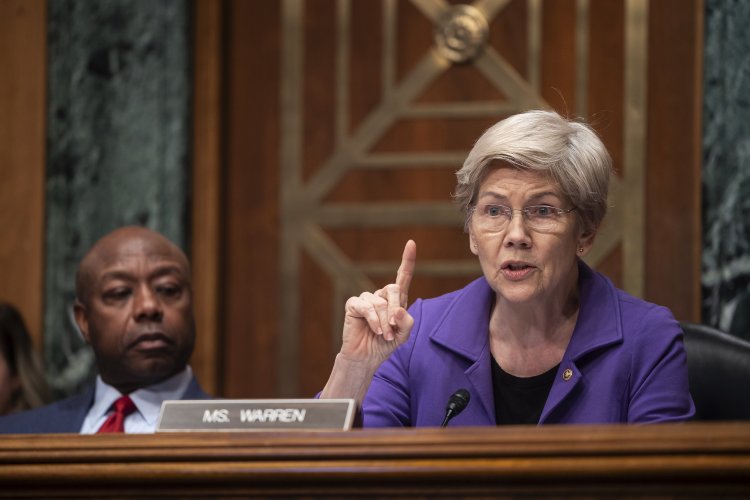Elizabeth Warren Previously Labeled Jerome Powell as 'Dangerous.' What Explains Her Current Defense of Him?
One of the Democratic Party’s prominent economic populists has shifted from fiercely criticizing Powell and the Federal Reserve to supporting them amidst Trump's pressure campaign.

However, one of the Fed's staunchest critics is now stepping up as a defender of its independence, particularly as President Donald Trump intensifies his public attacks on Powell.
“I disagree with Powell on both monetary and regulatory policy, but I have respect over how he’s managed the politics,” Warren stated this week, marking one of her rare positive comments about Powell. “He has made clear that he is interested in hearing from a broad range of people, but that ultimately he and the other members of the Fed will make their own decisions, and that is as it should be.”
As the leading Democrat on the committee overseeing financial agencies, Warren wields significant influence in advocating for the Fed’s autonomy from short-term political influences, especially since she has no compelling motive to align herself with Powell.
Warren and Powell have a strained relationship, having gone years without any private communication. She has not shied away from criticizing him or the institution he leads, and has expressed a desire for lower interest rates—a position she shares with Trump.
When asked how she differentiates her calls for lower rates from Trump's criticism of Powell, she replied that her approach is one of persuasion, while Trump’s criticisms come across as threats. “I don’t have any authority to make the Fed do anything,” the Massachusetts senator noted. “All I can do is try to persuade, and that’s what I try to do. Donald Trump is not trying to make an argument of persuasion. He’s making a threat when he says that if he wants Jay Powell gone, then Jay Powell will be gone.”
The prospect of Trump attempting to remove Powell looms over his presidency. Although Trump considered this during his first term, he ultimately decided against it, fearing it would exacerbate market instability. Recently, investors reacted negatively to Trump’s renewed insinuations regarding Powell’s job security, particularly following a post on Truth Social where he stated that Powell’s “termination cannot come fast enough!”
Treasury Secretary Scott Bessent clarified at a recent press roundtable that the president’s comments shouldn’t be interpreted as an outright promise to fire Powell, suggesting that “‘terminus’ can also mean the end.” Trump subsequently proclaimed that he had “no intention” of trying to remove Powell before his term concludes in May 2026. Still, the president is clearly attempting to exert influence over Fed policy.
While Warren advocates for lower interest rates, she is defending Powell for several reasons. Primarily, she has warned that a market crash could ensue if Trump were to succeed in ousting the Fed chair. She expressed particular concern about the behavior of U.S. government debt markets in the face of Trump’s trade rhetoric, which might be contributing to a perception that the U.S. is no longer a safe haven for investors.
“In a moment of chaos, the flight to safety did not land in the U.S. bond market,” Warren observed. “It went to other nations. That is a sobering moment for our nation.”
Moreover, Warren has a vested interest in the Fed's regulatory role. She contended that the stability of markets and the economy depends on the political independence of financial regulators like the Fed, much like it does on sound monetary policy. She referred to the historical independence of federal banking agencies, dating back to the Civil War.
“The Congress back in 1863 understood that if politicians could shorten or lengthen the leash on the banking regulators through the appropriations process, then no one could rely on a group of decision makers who were only thinking about safety and security of the financial system,” she asserted.
“If Donald Trump tries to fire the head of the Fed, he’s trying to swoop banking regulation into the political stew, and monetary policy and regulatory decisions made under those circumstances will not sustain markets over the long haul,” she added.
Although this argument may appear abstract, it speaks to an ongoing debate about the constitutionality of independent agencies as the Supreme Court reviews possible adjustments to their structure. Legal experts remain divided on the implications. Yet Warren maintains, “there’s no such thing as, you’re half independent.”
In essence, on Warren’s scale of pressing issues, Powell has notably slipped down the list of concerns.
Anna Muller for TROIB News
Find more stories on Business, Economy and Finance in TROIB business












